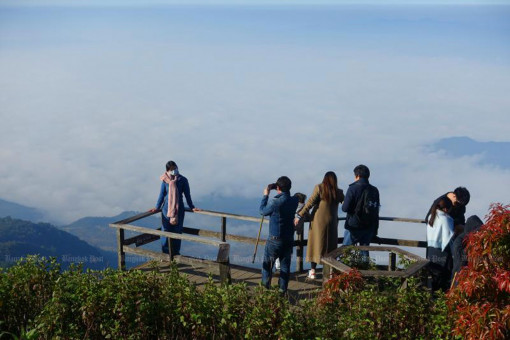Visitor numbers expected to surge in North during cool season
PUBLISHED : 11 Nov 2023 at 17:51

Seven key national parks in the North are stepping up measures to ensure compliance by visitors with a ban on alcohol drinking, as visits are expected to surge during the cold season.
More stringent measures are needed to ensure the ban is strictly followed at a time of year when national parks in upper Thailand are a top destination, said Songkran Pakchokdee, director of StopDrink Network, a non-governmental organisation that campaigns to curb alcohol consumption.
The alcohol ban, which took effect in 2021 at parks nationwide, is aimed at protecting the rights of the majority of visitors who prefer enjoying the natural beauty to partying, said Mr Songkran.
As well, he said, banning alcohol consumption protects the natural environment from rubbish usually left behind by drunk and rowdy campers, he said.
Those found flouting the alcohol ban can be fined up to 1,000 baht or jailed for up to one month.
The seven parks stepping up enforcement are Doi Suthep-Pui, Op Khan, Phu Hin Rong Kla, Doi Inthanon, Chae Son, Phu Soi Dao and Phu Chi Fa.
Surachet Phinitngam, assistant chief of Doi Suthep-Pui, said a number of warning signs have been erected in the park to remind visitors about the alcohol ban, while regular warnings are posted on the park’s official Facebook page.
Park staff will also encourage visitors to take part in its campaign to protect the environment by bringing back all rubbish from their campsites when leaving, he said.
Wanlop Mangtha, an officer at Op Khan National Park, said the park has only one entrance and staff usually ask for cooperation from visitors, with standard checks for alcoholic beverage containers made at the entrance.
However, during the high tourism season, pre-entry checks might be insufficient, so random patrols of camping sites are needed, he said.

